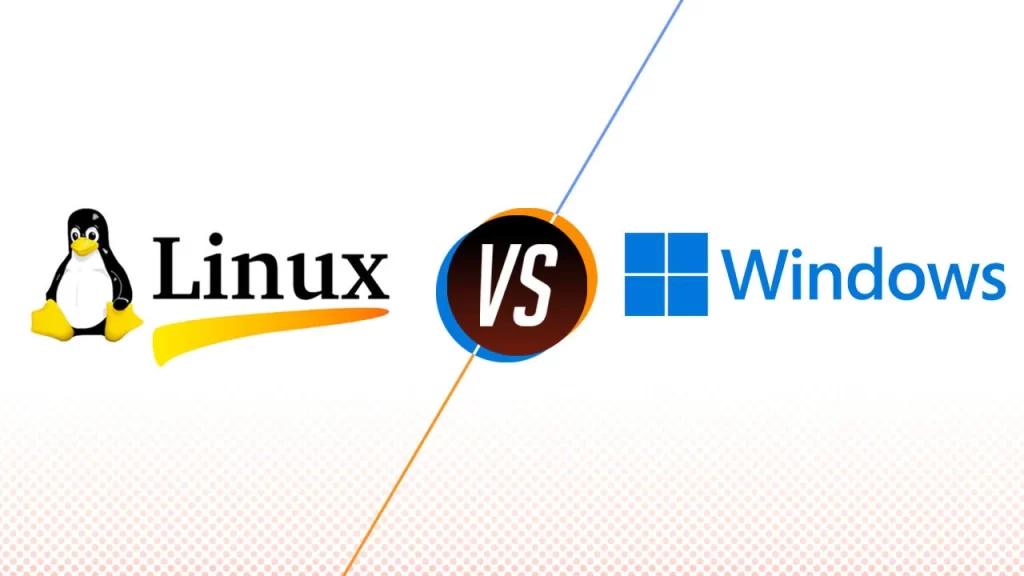
Table of Contents
Linux hosting vs Windows hosting refer to the two most popular operating systems used by web hosting providers to manage and deliver web services. The key differences between these two types of hosting involve the technologies they support, their compatibility with web applications, ease of use, security features, and overall performance.
Here’s a comparison to help you choose the right option Linux hosting vs Windows hosting:
1. Operating System & Technology Compatibility
- Linux Hosting:
- Runs on the Linux OS, which is open-source, secure, and highly customizable.
- Compatible with popular open-source technologies like PHP, MySQL, Python, and Perl.
- Commonly supports Apache or NGINX servers.
- Ideal for content management systems (CMS) such as WordPress, Joomla, Drupal, as well as e-commerce platforms like Magento.
- Windows Hosting:
- Runs on Windows Server OS from Microsoft.
- Best for ASP.NET, .NET Core, MSSQL, and Microsoft Access databases.
- Uses the IIS (Internet Information Services) web server.
- Works well with applications built in Visual Basic, C#, or that rely on Microsoft SQL Server.
2. Ease of Use Linux hosting vs Windows hosting
- Linux Hosting:
- Most Linux-based hosting comes with cPanel or similar control panels, which are user-friendly and provide a variety of tools.
- Linux has a strong community of support and extensive documentation.
- Windows Hosting:
- Windows hosting often uses Plesk as the control panel, which is also user-friendly but tailored to Windows environments.
- Microsoft provides direct support, and Windows hosting is generally easier for users familiar with the Windows ecosystem.
3. Performance of Linux hosting vs Windows hosting
- Linux Hosting:
- Known for its stability and speed, Linux hosting handles high loads effectively.
- Many servers run lightweight, performance-optimized versions of Linux, which is particularly beneficial for shared hosting.
- Windows Hosting:
- Windows Server has improved over the years, but it generally consumes more system resources than Linux.
- Windows hosting is reliable, but it may not perform as efficiently as Linux in high-load situations.
4. Security
- Linux Hosting:
- Known for its strong security features, Linux is open-source, which allows developers to address vulnerabilities quickly.
- Strong community support and extensive security options make it a secure choice.
- Windows Hosting:
- While Windows is highly secure, it’s also a frequent target for attacks due to its popularity.
- Regular updates from Microsoft help protect against vulnerabilities, but security may also rely on paid licensing and support.
5. Cost
- Linux Hosting:
- Generally more affordable because Linux is open-source, and hosting providers don’t have to pay licensing fees for the OS.
- Ideal for budget-conscious users or small businesses.
- Windows Hosting:
- Windows Server requires licensing fees, so Windows hosting plans tend to be more expensive.
- Suitable for users with specific requirements that only Windows can meet, such as applications that require ASP.NET.
6. Application Compatibility
- Linux Hosting:
- Ideal for websites built with open-source applications and technologies, including PHP and MySQL.
- Common choice for WordPress sites, given its compatibility and ease of use.
- Windows Hosting:
- Recommended for users who need ASP.NET or Microsoft SQL Server.
- A better option for businesses with Windows-based applications or environments that rely on specific Microsoft tools.
7. Who Should Choose Which?
- Choose Linux Hosting If:
- You’re building a website with PHP, MySQL, or open-source platforms like WordPress, Joomla, or Drupal.
- You want a cost-effective, secure, and stable hosting solution.
- You prefer open-source environments and customization.
- Choose Windows Hosting If:
- Your website requires ASP.NET, .NET Core, MSSQL, or other Microsoft technologies.
- You need to integrate with other Microsoft products or services, such as Exchange or SharePoint.
- You are familiar with the Windows environment and prefer Microsoft’s ecosystem.
Summary Comparison Table
| Feature | Linux Hosting | Windows Hosting |
|---|---|---|
| Operating System | Linux (open-source) | Windows Server (proprietary) |
| Web Server | Apache, NGINX | IIS (Internet Information Services) |
| Best for | PHP, MySQL, WordPress, Joomla | ASP.NET, .NET, MSSQL |
| Control Panel | cPanel | Plesk |
| Cost | More affordable (no licensing fees) | Generally higher due to licensing |
| Performance | Lightweight, stable, efficient | Reliable, but more resource-intensive |
| Security | Strong, community-driven security | Secure, but needs regular updates |
| Ideal Users | Open-source applications, developers | Microsoft ecosystem users, Windows app hosting |
In summary, Linux hosting is a popular choice for most websites, offering stability, cost-efficiency, and compatibility with open-source software, while Windows hosting is best for users who specifically need to use Microsoft technologies or require integration with Microsoft products.
Final Thoughts
This article comparing Linux hosting vs Windows hosting has discussed all of the important details necessary for making a choice between the two platforms. Both have advantages and disadvantages that must be considered before making a decision. It is recommended to evaluate the requirements of your business and then determine which of the two server operating systems is the best fit for your needs.